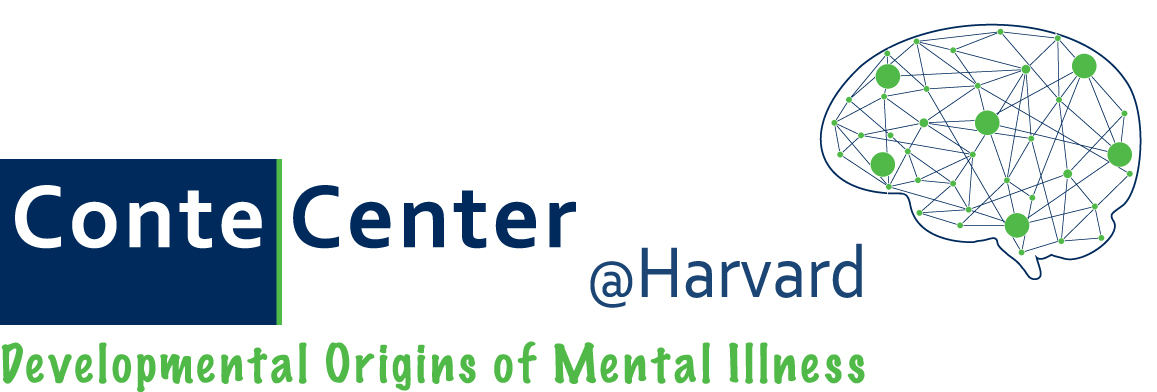“Enhancing gamma oscillations in Alzheimer’s disease: mechanism and pilot study in humans”
Li-Huei Tsai, Ph.D
Director, Picower Institute for Learning and Memory,
Massachusetts Institute of Technology
This seminar is in conjunction with the Conte Center Undergraduate Neuroscience and Mental Health Research Poster session being held in the NWL Cafe from 3:00 - 4:15, please stop by to see the newest research and grab a bite!
Free and open to the public. Click here for more info and zoom link
“Dynamic consequences of early life stress on brain development: from endocrinology to epigenetics”
Catherine Jensen Peña, PhD
Assistant Professor, Princeton Neuroscience Institute
Free and open to the public. Click here for more info and zoom link
“Neuroinclusion at Work: Belonging, not the Buzzwords”
Ludmila Praslova, PhD, SHRM-SCP
Author, “The Canary Code”,
Professor, Graduate Organizational Psychology,
Vanguard University of Southern California
Free and open to the public. Click here for more info and zoom link
“Adolescence as a Critical Period in Humans”
Theodore Satterthwaite, MD
McClure Endowed Chair of Psychiatry and Behavioral Research,
Director of Penn Lifespan Informatics and Neuroimaging Center,
UPenn Perelman School of Medicine
Free and open to the public. Click here for more info and zoom link
“My Brother Chases Dinosaurs: Embracing Neurodiversity”
Giacomo Mazzariol
Free and open to the public. Click here for more info and zoom link
“Psychedelics and Related Plasticity-Promoting Neurotherapeutics”
David Olson, PhD
Director, Institute for Psychedelics and Neurotherapeutics,
Associate Professor, Department of Chemistry,
Department of Biochemistry and Molecular Medicine, University of California, Davis
Free and open to the public. Click here for more info and zoom link
“Cell-type specific transcriptional networks related to neurodevelopmental disorders”
Genevieve Konopka, PhD
Professor and Vice Chair, Department of Neuroscience; Jon Heighten Scholar in Autism Research,
Townsend Distinguished Chair in Research on Autism Spectrum Disorders,
University of Texas Southwestern Medical Center
Free and open to the public. Click here for more info and zoom link
“Neurodevelopmental Mechanisms Linking Childhood Adversity with Psychopathology Across the Life-Course”
Katie A. McLaughlin, PhD
Professor, Dept. of Psychology
Harvard University
Free and open to the public. Click here for more info and zoom link
“The neuroscience of social isolation through the big-data lens”
Danilo Bzdok, MD, PhD
Canada CIFAR AI Chair, Mila-Quebec A.I. Institute,
Associate Professor, McGill University Faculty of Medicine
Montreal Neurological Institute
Free and open to the public. Click here for more info and zoom link
“Gephyrin phosphorylation drives sex-dimorphic GABAergic connectivity in the hippocampus”
Shiva Tyagarajan, PhD
Neurodevelopmental Pharmacology Lab
Institute of Pharmacology and Toxicology
University of Zurich, Switzerland
Free and open to the public. Click here for more info and zoom link
Why is it harder to learn languages when you’re older? Why do star athletes and master musicians start training young? Why are certain medical conditions reversible in kids, but not in adults?
The answer to all of these questions and many more lies in the existence of ‘critical periods’—windows of time in human and animal development when environmental experience molds neural circuits. While experience can influence the brain long before and after critical periods, the sculpting power of its hand is never quite as strong than as during these periods of heightened plasticity.
A couple weeks ago, I attended an annual gathering of superheroes called “Blue Sky Girls Day.” At first glance, these people look ordinary. There wear no special capes or tights, and they summon their strongest powers for things most people take for granted. Like walking, talking, grasping objects, eating, drinking, sleeping—sometimes even breathing.
Yet many of these daily activities present epic battles for individuals with Rett Syndrome, a rare neurodevelopmental disorder that almost exclusively affects females and is caused by sporadic mutations in the X-chromosome gene MeCP2. What these individuals and their families quietly accomplish each day in real life is more impressive than the feats of any movie superhero. This is because one of the hallmarks of Rett is a striking developmental regression—in which children who seem to be developing normally all of a sudden lose the ability to speak or make purposeful hand movements—developing autism-like behavioral symptoms in addition to potentially experiencing seizures, scoliosis, breathing difficulties, gastrointestinal problems and other issues.












